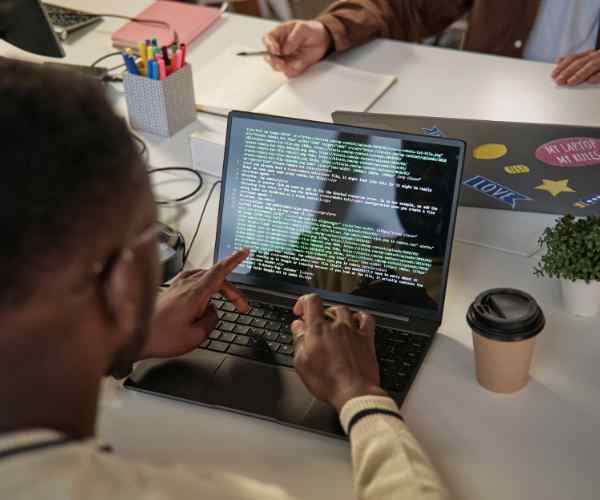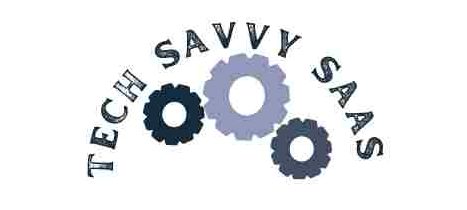Imagine the journey of Alex, who went from staring blankly at a “Hello, World!” program to deploying sophisticated machine learning models to predict stock market trends. Alex’s story is not just about personal achievement but also about the universal power of coding to transform lives and industries. In today’s digital age, coding has cemented its role as an essential skill across various sectors, from creating engaging websites in web development to developing algorithms in machine learning that drive innovation and efficiency.
This article is crafted from a rich tapestry of personal experiences, practical tips, and cutting-edge research from the realms of computer science and software engineering. Whether you’re a budding programmer or looking to refine your coding skills, you’ll find valuable insights that bridge theory with real-world application.

Why Grasping Core Concepts Before Jumping In Is Crucial
Before you run, you must learn to walk. This age-old wisdom rings especially true in the world of coding. Just as mastering grammar and vocabulary is crucial before attempting to write a novel in a foreign language, understanding the fundamentals of programming languages is essential for anyone looking to become proficient in coding. Consider Python, a popular programming language known for its simplicity and versatility. My journey into coding began with Python. Starting with variables and loops, I quickly realized that mastering these basic constructs was akin to learning the alphabet of a new language. This foundational knowledge was instrumental when I later delved into more complex concepts like data structures and object-oriented programming.
Resources to Solidify Your Foundation
The internet is awash with resources for aspiring coders, but not all are created equal. Through trial and error, I discovered several online courses and open-source projects that stand out for their quality and ability to cater to beginners:
- Codecademy’s Python Course: This interactive platform was a game-changer for me. With hands-on exercises and real-time feedback, I could see my progress and understand the immediate application of the concepts I was learning.
- Harvard University’s CS50: Available for free through edX, CS50 provides a broad overview of computer science and programming. It’s like a buffet that lets you sample various aspects of coding, from algorithms to web development, guiding you on where to dive deeper.
- GitHub: Home to countless open-source projects, GitHub offers a unique opportunity to see theory in action. Contributing to an open-source project, even in a small way, can accelerate your learning by exposing you to real-world code and development practices.
- Stack Overflow: While not a course or project, Stack Overflow is an invaluable resource for overcoming obstacles. Here, I learned that encountering problems is a universal part of the coding journey. More importantly, I discovered the power of community in solving these problems.
Why Is Daily Practice Crucial for Mastering Coding?
The journey to becoming a proficient software developer is paved with daily practice. This statement isn’t just motivational fluff; it’s a reality echoed by numerous successful software engineers and supported by hard data. For instance, a study from the National Institute of Informatics found a strong correlation between daily coding practice and problem-solving abilities in computer programming. The researchers discovered that individuals who coded every day, even for short periods, significantly improved their algorithmic thinking and coding efficiency over those who practiced in larger, less frequent intervals.
Anecdotes from industry leaders further illustrate this point. Mark Zuckerberg, for example, famously committed to coding every day during his college years, a habit that laid the groundwork for the development of Facebook. Similarly, Grace Hopper, a pioneer in computer programming, often spoke about the importance of daily problem-solving and continuous learning, attributes that contributed to her groundbreaking contributions to computer science.
The Link Between Practice Hours and Job Success
Data from the Bureau of Labor Statistics underscores the value of consistent practice in the software development industry. According to their findings, software engineers who engage in regular, structured coding sessions tend to advance more quickly in their careers compared to their peers who adopt a more sporadic approach to learning. Moreover, a GitHub analysis of developer activity revealed that those who committed code daily were 20% more likely to work on major projects and 30% more likely to contribute to open-source projects, showcasing the professional advantages of consistent practice.
Setting Up a Practice Routine
Incorporating coding practice into a busy schedule might seem daunting, but many developers have found creative ways to integrate daily coding sessions into their lives, achieving remarkable progress. Here are practical tips drawn from their experiences:
- Start Small: Begin with as little as 15 minutes of coding each day. The key is consistency, not duration. Over time, these short sessions add up and become a habit.
- Tackle real problems: Choose small projects or challenges that interest you. Real-world problems not only keep you engaged but also enhance your problem-solving skills. Websites like HackerRank and LeetCode offer a plethora of coding challenges that range in difficulty and topic.
- Schedule it: Treat your coding practice like an important meeting. Set a specific time each day for coding, and stick to it. Early mornings or late evenings are preferred by many developers, as these times often have fewer distractions.
- Use commute time: For those with long commutes, consider using that time to code. Mobile apps like SoloLearn and Enki are designed for on-the-go learning and practice.
- Track Your Progress: Tools like GitHub can be used to track your daily commits, helping you maintain consistency and visualize your progress over time.
- Join a Community: Engage with online coding communities on platforms like Reddit or Stack Overflow. These communities can provide motivation, answer questions, and offer support on those inevitable tough days.
Real-life Example: Sarah, a software developer who now works at a leading tech company, shared how dedicating 30 minutes each morning to coding exercises before her day job was a game-changer. Despite a full-time job and family responsibilities, this consistent practice over two years allowed her to transition from a junior to a senior developer role, highlighting the transformative power of daily discipline.
Why Are Projects Integral to Enhancing Learning in Coding?
The mantra “learning by doing” is especially true in the realm of coding and software development. Engaging with real projects allows learners to apply theoretical knowledge in practical scenarios, fostering a deeper understanding of programming concepts. Projects span across various domains and programming languages, each with its own unique challenges and learning opportunities.
Project Ideas Across Different Domains
- Web Development: Create a personal portfolio website using HTML, CSS, and JavaScript. This project introduces basic web design principles, responsive design techniques, and basic scripting.
- Data Structures with Java: Implement a custom data structure, such as a linked list or binary tree, in Java. This project enhances understanding of object-oriented programming principles and data handling.
- Machine Learning with Python: Develop a simple machine learning model using Python and libraries like Scikit-learn to predict stock prices or classify emails. It’s a great way to dive into data analysis and machine learning principles.
- Mobile App Development: Build a to-do list app using Swift (for iOS) or Kotlin (for Android). This project teaches the basics of mobile UI design, local data storage, and app lifecycle management.
- Game Development: Create a basic 2D game using Unity and C#. This introduces game physics, collision detection, and user interface design within a game development context.
Developer Stories: Learning Through Projects
Numerous developers have catapulted their careers forward by diving into projects. For example, Elena, a self-taught developer, built a weather forecasting app using JavaScript and APIs. This project not only solidified her understanding of asynchronous programming and API integration but also caught the attention of her future employer during an interview.
Tom, a computer science student, developed an inventory management system for a local charity using Python and Django. This real-world project taught him about database management, user authentication, and web application deployment. Tom’s project significantly contributed to his portfolio, showcasing his skills to potential employers.
Learning from Mistakes: The Power of Debugging and Problem-Solving
The process of debugging and solving coding problems is an invaluable learning experience. Each error encountered is an opportunity to understand coding languages and frameworks on a deeper level. Making mistakes and finding solutions instill resilience and enhance problem-solving skills, critical attributes of successful developers.
For instance, Mia, an aspiring web developer, shared how a bug in her web application led to a deep dive into JavaScript event propagation. The process of identifying and resolving the issue not only fixed her app but also expanded her understanding of how events work in the browser.
Similarly, Jake, a software engineer, encountered a memory leak in a complex C++ application. The journey to isolate and fix the leak provided Jake with a practical understanding of memory management and optimization techniques in C++, skills that textbooks alone could not impart.
Why Are Projects Integral to Enhancing Learning in Coding?
The mantra “learning by doing” is especially true in the realm of coding and software development. Engaging with real projects allows learners to apply theoretical knowledge in practical scenarios, fostering a deeper understanding of programming concepts. Projects span across various domains and programming languages, each with its own unique challenges and learning opportunities.
Project Ideas Across Different Domains
- Web Development: Create a personal portfolio website using HTML, CSS, and JavaScript. This project introduces basic web design principles, responsive design techniques, and basic scripting.
- Data Structures with Java: Implement a custom data structure, such as a linked list or binary tree, in Java. This project enhances understanding of object-oriented programming principles and data handling.
- Machine Learning with Python: Develop a simple machine learning model using Python and libraries like Scikit-learn to predict stock prices or classify emails. It’s a great way to dive into data analysis and machine learning principles.
- Mobile App Development: Build a to-do list app using Swift (for iOS) or Kotlin (for Android). This project teaches the basics of mobile UI design, local data storage, and app lifecycle management.
- Game Development: Create a basic 2D game using Unity and C#. This introduces game physics, collision detection, and user interface design within a game development context.
Developer Stories: Learning Through Projects
Numerous developers have catapulted their careers forward by diving into projects. For example, Elena, a self-taught developer, built a weather forecasting app using JavaScript and APIs. This project not only solidified her understanding of asynchronous programming and API integration but also caught the attention of her future employer during an interview.
Tom, a computer science student, developed an inventory management system for a local charity using Python and Django. This real-world project taught him about database management, user authentication, and web application deployment. Tom’s project significantly contributed to his portfolio, showcasing his skills to potential employers.
Learning from Mistakes: The Power of Debugging and Problem-Solving
The process of debugging and solving coding problems is an invaluable learning experience. Each error encountered is an opportunity to understand coding languages and frameworks on a deeper level. Making mistakes and finding solutions instill resilience and enhance problem-solving skills, critical attributes of successful developers.
For instance, Mia, an aspiring web developer, shared how a bug in her web application led to a deep dive into JavaScript event propagation. The process of identifying and resolving the issue not only fixed her app but also expanded her understanding of how events work in the browser.
Similarly, Jake, a software engineer, encountered a memory leak in a complex C++ application. The journey to isolate and fix the leak provided Jake with a practical understanding of memory management and optimization techniques in C++, skills that textbooks alone could not impart.
Why Is Peer Learning in Coding Communities Beneficial?
The digital era has ushered in unparalleled opportunities for learning and collaboration, particularly in the coding and software development arena. Online communities and forums have become vibrant ecosystems where programmers, from novices to experts, converge to share knowledge, solve problems, and learn from each other. Participating in these communities offers numerous advantages, significantly impacting one’s learning curve and professional development.
Advantages of Peer Learning Through Online Communities
- Diverse Perspectives: Online communities are melting pots of cultural and intellectual diversity, offering a broad spectrum of approaches to solving coding problems. This diversity enriches the learning experience, introducing programmers to a variety of coding styles and techniques.
- Real-Time Feedback: Unlike traditional learning environments, online forums and coding communities provide immediate feedback. This instantaneity accelerates the learning process, enabling learners to quickly identify and correct mistakes.
- Mentorship Opportunities: Many experienced developers are eager to share their knowledge and experience, acting as mentors to newcomers. This mentorship can guide learners through complex concepts and offer career advice, which is invaluable for personal and professional growth.
- Staying Updated: Technology evolves rapidly, and being part of a coding community helps members stay abreast of the latest trends, tools, and best practices in software development.
Testimonials Highlighting the Impact of Coding Communities
Sarah, a web developer, attributes her rapid growth to the mentorship and advice she received on Stack Overflow. She recalls, “Being part of an online community accelerated my problem-solving skills and kept me motivated. The guidance I received from more experienced developers was crucial in landing my first developer job.”
Alex, another aspiring developer, found a mentor through GitHub while contributing to open-source projects. “The experience was transformative. My mentor not only helped me understand complex algorithms but also taught me about effective collaboration in software projects,” he notes.
Participating in Coding Challenges
Coding challenges and hackathons are not just competitions; they are learning festivals. These events push participants to apply their knowledge, think creatively, and solve problems under time constraints. Beyond the competitive element, they are fantastic opportunities for learning, networking, and even securing job offers.
How Coding Challenges Facilitate Learning
- Learning Under Pressure: The time-bound nature of challenges simulates real-world deadlines, teaching programmers to think and code efficiently.
- Exposure to New Technologies: Many coding challenges encourage the use of new tools and technologies, offering a practical way to learn and experiment with them.
- Problem-Solving Skills: Tackling diverse problems in challenges enhances critical thinking and problem-solving skills, which are crucial for any software developer.
Anecdotes from Developers on Coding Challenges
Liam, a software engineer, shares his experience with LeetCode challenges: “Participating in daily coding challenges was a game-changer for me. It not only sharpened my coding skills but also prepared me for technical interviews. I landed a job at a major tech company largely thanks to the practice and confidence I gained from these challenges.”
Emily, who frequently participates in hackathons, finds the collaborative aspect transformative: “Hackathons taught me the power of teamwork in developing innovative solutions. Working under pressure with a team of people I met for the first time broadened my horizons and improved my collaboration skills.”
What Are the Essential Coding Tools for Developers?
In the vast landscape of software development, the right tools can significantly enhance productivity, streamline workflows, and facilitate a more efficient learning process. From version control systems to integrated development environments (IDEs), each tool serves a pivotal role in the development cycle.
- Version Control Systems: Git is the cornerstone of modern software development, allowing developers to track and manage changes to their codebase. Services like GitHub and Bitbucket offer cloud-based repositories that also foster collaboration among developers.
- Code Editors: Lightweight and powerful, code editors like Visual Studio Code (VS Code) and Sublime Text provide syntax highlighting, code completion, and customizable interfaces that cater to developers’ preferences.
- Integrated Development Environments (IDEs): For more comprehensive features, IDEs such as IntelliJ IDEA and Eclipse offer robust tools for code analysis, debugging, and testing within a single interface, significantly reducing development time.
- Debuggers: Tools like GDB (for C/C++) and Pry (for Ruby) are indispensable for identifying and fixing errors in code, enhancing the quality and reliability of software.
- Containers and Virtual Environments: Docker and virtualenv for Python allow developers to create isolated environments, making it easier to manage dependencies and ensure consistency across development, testing, and production environments.
Software Engineers’ Must-Haves
In conversations with industry professionals, a common theme emerges: the importance of a personalized toolset that complements one’s workflow. For instance, Emma, a senior web developer, emphasizes the role of VS Code coupled with the Live Share extension for real-time collaboration with her team. Similarly, Liam, a backend developer, relies on Docker to streamline the deployment process and ensure that his applications run smoothly across different environments.
Online Resources and Platforms for Learning Coding
The internet is replete with educational resources for aspiring and experienced developers alike. These platforms offer courses and tutorials across a spectrum of topics, from basic programming fundamentals to advanced machine learning algorithms.
- Coursera and edX: These platforms offer university-level courses in partnership with top institutions around the world. Courses like Harvard’s CS50 on edX provide a comprehensive introduction to computer science.
- Udacity: Known for its nanodegree programs, Udacity offers specialized training in fields such as data science, artificial intelligence, and web development, with a focus on project-based learning.
- Codecademy: For beginners looking to get their feet wet in coding, Codecademy offers interactive lessons in a variety of programming languages and web technologies.
- Pluralsight: Catering to more experienced developers, Pluralsight provides in-depth courses on software development, IT operations, and cybersecurity.
Benefits of Immersive Learning Platforms
The research underscores the efficacy of immersive, project-based learning in coding education. A study from the Massachusetts Institute of Technology (MIT) revealed that students who engaged in hands-on projects and coding exercises demonstrated a deeper understanding of programming concepts and higher retention rates compared to those who learned through traditional lecture-based methods.
Personal experiences mirror these findings. For example, Zoe, a self-taught software engineer, attributes her success to the structured curriculum and community support she found on FreeCodeCamp. The platform’s emphasis on building projects and solving algorithms helped her develop a solid coding foundation and problem-solving skills.
FAQs
What is the best way to start learning coding?
The best way to start learning to code involves a combination of understanding the fundamentals through structured courses and applying what you learn through projects. According to the 2023 Stack Overflow Developer Survey, the majority of successful developers recommend starting with a widely used and beginner-friendly programming language such as Python. Python’s syntax is clear and intuitive, making it an excellent choice for beginners. Furthermore, engaging with interactive platforms like Codecademy or FreeCodeCamp can provide a solid foundation in coding basics. These platforms blend theory with practical exercises, allowing learners to immediately apply what they’ve learned.
How much time should I dedicate to coding practice daily?
The amount of time dedicated to coding practice varies by individual, but consistency is key. Data from a Harvard University study suggests that as little as 30 minutes of coding practice per day can significantly improve problem-solving skills and coding proficiency over time. The crucial aspect is making coding a daily habit, even if it’s just for a short period of time. This consistent practice helps reinforce learning and keeps coding principles fresh in your mind.
Can I learn coding by myself?
Absolutely. Many successful software engineers are self-taught, utilizing online resources, books, and community forums to learn coding. Developer surveys indicate that nearly 45% of professional developers consider themselves at least partially self-taught. The wealth of online courses, tutorials, and communities makes it feasible for motivated individuals to learn coding independently. Key to self-learning is the proactive seeking of resources, active participation in coding communities for peer support, and hands-on practice through personal or open-source projects.
What are the common mistakes beginners make while learning to code?
One common mistake is trying to learn too many programming languages or frameworks at once. This can lead to confusion and shallow understanding. Focus on mastering one language at a time, starting with a versatile language like Python or JavaScript. Another mistake is neglecting the fundamentals of computer science, such as algorithms and data structures, which are crucial for solving complex problems efficiently. Lastly, avoiding projects due to fear of failure can hinder practical learning. Projects are critical for applying theoretical knowledge and developing problem-solving skills.
How do I stay motivated when coding gets tough?
Staying motivated involves setting clear, achievable goals, celebrating small victories, and connecting with a supportive community. When faced with challenges, break them down into smaller, more manageable tasks. Remember, every programmer encounters obstacles; perseverance is key. Joining forums like Stack Overflow or GitHub can also provide encouragement and advice from fellow developers. Additionally, remind yourself of why you started learning to code, whether it’s to pursue a career in technology, solve problems, or build something meaningful.
Conclusion
Learning to code efficiently is a journey that combines mastering the fundamentals, consistent practice, engaging in projects, and participating in coding communities. The experiences of renowned software developers underscore the importance of persistence, curiosity, and the willingness to learn from mistakes. Coding is more than a job skill; it’s a means to creative expression, problem-solving, and making significant contributions to the digital world.
As you embark on or continue your coding journey, let the strategies and insights shared here guide you. Embrace coding as a continuous learning process, rich with opportunities to innovate and impact the world around you. Remember, every coder started somewhere, and with dedication and the right resources, you too can achieve proficiency and beyond.
Take the first step today—dive into an online course, start a small project, or join a coding challenge. The path to becoming a proficient developer is in your hands, and the coding community is here to support you every step of the way. Let’s code a better future together.
More Post






